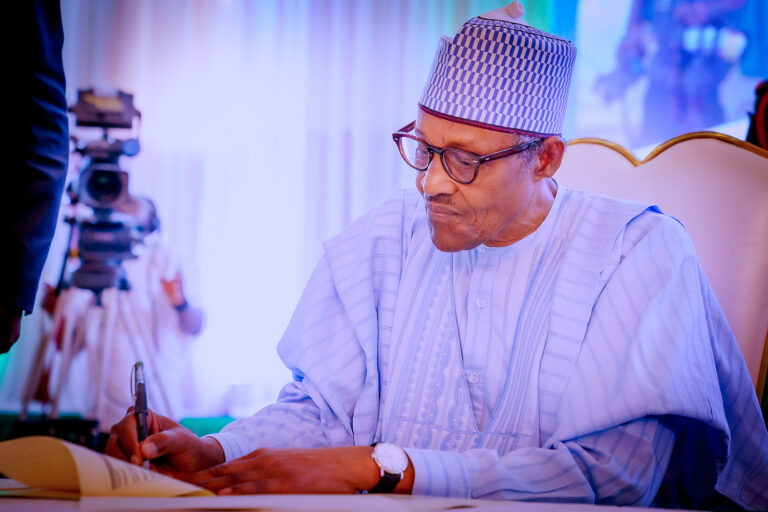Abuja, Nigeria – As economists begin assessing Muhammadu Buhari’s economic legacy, his 2015-2023 presidency emerges as one of Nigeria’s most transformative – and contentious – periods. From twin recessions to trillion-naira interventions, these eight years fundamentally altered the nation’s economic trajectory.
The Defining Moments
Twin Economic Collapses
• 2016 Recession: Oil price crash (-1.6% GDP)
• 2020 Pandemic Slump: -1.8% contraction
• Between them: 15 quarters of sub-2% growth
Oil Sector Upheaval
• Production crash to 900,000 bpd (2022)
• $3B/year lost to oil theft
• NNPC corporatization – revolution or missed opportunity?
Radical Fiscal Moves
• Treasury Single Account recovered ₦1.2T idle funds
• Border closure boosted rice farming 52%
• N2.3T COVID stimulus saved 1.3M jobs (official data)
The Controversies That Divided Experts
Naira Redesign Fallout
• ₦1.4T cash scarcity crisis
• 43% temporary business closures (NBS)
• Yet currency in circulation dropped 70%
Debt Tsunami
• Domestic debt exploded 408% to ₦44.9T
• Debt servicing reached 96% of revenue (2022)
• But infrastructure spending hit record highs
Fuel Subsidy Paradox
• Paid ₦4.8T in subsidies despite TSA reforms
• Off-spec petrol crisis exposed supply chain rot
• Left successor painful removal decision
Global Wins vs Domestic Pains
Diplomatic Triumphs
✓ Okonjo-Iweala as first WTO African DG
✓ Adesina’s AfDB presidency renewed
✓ African Continental Free Trade leadership
Homefront Challenges
• Inflation peaked at 22.8% (2023)
• Unemployment hit 33% (Q4 2022)
• Naira lost 68% value against dollar
Legacy Verdict: Foundation or False Start?
Pro-Reform View:
“His anti-corruption platforms and agricultural push were game-changers” – Dr. Ayo Teriba, economist
Critic’s Take:
“Debt binge without productivity gains was catastrophic” – Prof. Pat Utomi
By The Numbers:
• Rice production: 5.4M → 8.9M metric tons
• Tax revenue: ₦3.7T → ₦10.1T
• Electricity grid collapses: 42 in 8 years

